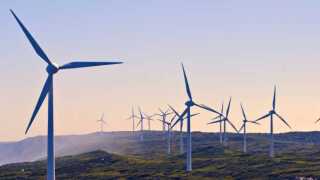At Mobile World Congress 2024, Huawei unveiled three innovative data storage solutions designed for the ‘AI Era’.
This comes in the form of an AI data lake solution, an all-scenario data protection solution and a DCS full-stack data centre solution.
Dr Zhou said that AI is prompting a data awakening, which is accelerating data assetisation. Huawei Data Storage will remain committed to providing storage solutions for all scenarios, to help carriers build leading data infrastructure in the AI era.
He believes that with ongoing digitalisation, organisations have essentially become data factories because of the rapid progression of AI. With that, there must be cost-effective storage systems brought about by AI technology in order for businesses to adhere to a sustainable business model.
Alongside that, Dr Zhou believes that it is essential for data storage to “naturally” support security and data protection, particularly in an age where cybersecurity is of utmost importance to organisations.
Dr Zhou thinks this can be done through regulations put in place by either organisations or governments to ensure security support and data resilience.
And data resilience was at the forefront of Huawei’s strategy at MWC. One of the company’s latest solutions is OceanStor A800 and OceanStor A310, which makes AI training data globally visible, manageable and available and improves data collection, preprocessing and training efficiency.
OceanStor A800 is a next-gen high-performance NAS storage solution and boasts a robust AI storage power foundation with a data and control plane separation architecture.
Huawei is launched the OceanProtect E8000 and X9000 data backup appliance solutions and next-gen OceanStor Arctic magneto-electric storage solution that is designed for both warm and cold data. The magneto-electric storage solution is predicted to reduce power consumption by around 90%.
Dr Zhou says the products will go to market in Q3 of this year.
Demand
Huawei has encountered numerous difficulties in recent years, mainly due to geopolitical issues with the US.
Nonetheless, the company has bounced back and adapted its strategy. According to Dr Zhou, 60% of the data storage business revenue is generated from overseas.
He highlighted Africa as a region with great potential, stating that the ongoing digitisation of the continent is similar to what Huawei has already experienced in China.
while its native market continues to thrive, Dr Zhou believes that Europe will continue to “drive” Huawei from both a technology standpoint and on an AI front.
Additionally, Huawei plans to focus on the Latin America and Asia Pacific regions in the future.





